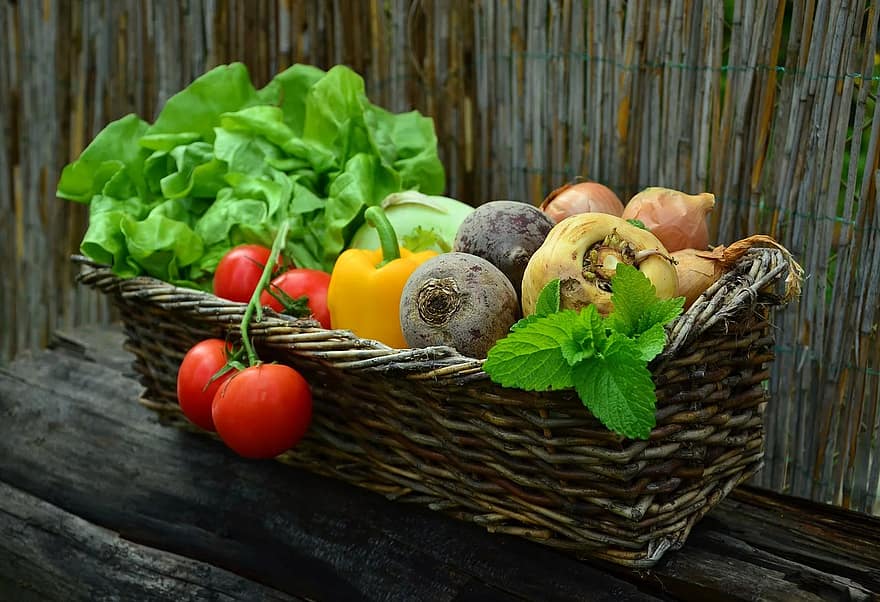This post is a continuation of Part 1 on Why Are Vitamins Important. Lately, we have gone through:
– What are vitamins?
– Why is it so important to know how to dose your vitamins?
– Where to find your vitamins, and what is their role?
This post will now provide a table on the following:
– the different vitamins essential to the body
– their Recommended Daily Allowance (RDA)
– the foods in which they are best represented

|
Type of vitamin |
RDA in healthy adults |
What contribution to our health? |
Where to find it? |
|---|---|---|---|
|
Vitamin C |
60 to 100 mg/day |
Role in : – collagen synthesis; – iron absorption; – 70% decrease in the risk of dying from cardiovascular disease, according to a Spanish study. |
Mainly in fresh vegetables, especially green vegetables, but also fruits: kiwis, citrus fruits (oranges, lemons, grapefruit), strawberries… |
|
Vitamin B1 |
1.5 mg/day. NB: this vitamin is also found under the name “thiamine”. |
Allows the metabolism of carbohydrates. |
Mainly in dried vegetables, yeasts, offal, dried fruits, and oilseeds. |
|
Vitamin B2 |
1 to 2 mg/day. NB: this vitamin is also called “riboflavin”. |
– Allows the proper functioning of the metabolism of proteins.
– Constitutes coenzymes whose role allows the transport of hydrogen in the body. |
Mainly present in green vegetables, eggs, and milk. |
|
Vitamin B3 |
10 to 20 mg/day. NB: it is also called Vitamin PP or “niacin”. |
Like vitamin B2, it plays an important role in the transport of hydrogen. |
Mainly in meat, liver, flour, and yeast. |
|
Vitamin B5 |
Variable RDAs. NB: it is also called “pentothenic acid”. |
One of the constituents of coenzyme A. |
Mainly in eggs and meat but also in cereals and vegetables. |
|
Vitamin B6 |
1 to 2 mg/day. NB: it is also called “pyridoxine”. |
Plays an important role in the synthesis of vitamin PP. That is why they are often associated. |
Mainly in yeast, cereals, green vegetables, fish, eggs, and meat. |
|
Vitamin B8 |
150 to 300 micro gr/day. NB: it is also called “biotin”. |
Role in the synthesis of fatty acids. |
It is found in eggs, liver, chocolate, legumes, and mushrooms. |
|
Vitamin B12 |
2.4 µg /day for adults, 2.6 µg for pregnant women, 2.8 µg for breastfeeding women. NB: it is also called “cyanoco-balamin”. |
Role for nervous system carbohydrates, fetal development, immune response, and non-proliferative tissue homeostasis. |
Mainly in offal (liver, kidneys), and fatty fish. |
|
Folic Acid |
200 to 400 micrograms/day |
Role in the synthesis of serine and nucleic acids. |
Mainly in meat, green vegetables, and offal. |
|
Vitamin A |
750 to 1200 micrograms/day. NB: also called “resinol”. |
– Role in vision.
– Role at the level of cell membranes. |
Mainly in fish, raw butter, cheese, milk, and eggs and as carotene in fruits, and green vegetables. |
|
Vitamin D |
Variable depending on the time of year (sun exhibition). NB: also called “drolecalciferol”. |
Role in the absorption of calcium and phosphorus. |
Mainly in eggs, butter, and fish roe + sun exposure. |
|
Vitamin E |
Needs covered by basic food. NB: also called “alpha-tocopherol“. |
Essential antioxidant. |
Mainly in eggs, liver, butter, and milk. |
|
Vitamin K |
Poorly known RDAs. |
Role in blood clotting. |
Mainly in green vegetables, liver, and strawberries. |
Vitamin deficiency

A deficiency in one or the other of these vitamins can lead to various disorders:
– Physical fatigue: this can come from a vitamin C deficiency or an imbalance of several vitamins;
– Nervous fatigue, neurasthenia, memory loss: these can result from a lack of group B vitamins;
– skin problems and abnormal hair loss: may be related to a lack of vitamin A and group B vitamins.
However, as explained above, vitamin over-consumption should not be overdone, and the above disorders can have many other causes.
Therefore, the important thing is to identify the cause of physical or emotional discomfort to provide the appropriate solution and, in case of doubt, never neglect your doctor’s advice.
Hope the above helps you out. Next time your doctor detects that you may have some vitamin deficiency, you’ll know what he is talking about.



Pingback: Why Are Vitamins Important (Part 1) – Hello sites